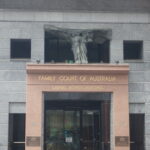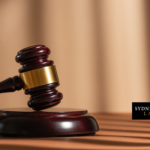Turnbull Plans to Dilute Australia’s Race Hate Laws

The political climate has changed around the globe since Australian prime minister Malcolm Turnbull announced there would be a Senate inquiry into whether to change section 18C of the Racial Discrimination Act (RDA) in November last year.
The tide had already turned since the federal election last July, when four One Nation candidates were voted into the Senate. And the UK’s Brexit vote in June last year also reflected a rise in racially-motivated populist politics.
Then Donald Trump took office in the United States, and a scourge of xenophobic hate crimes swept across the US. And more recently, the Western Australian Liberal party thought it profitable to strike a preference deal with Pauline Hanson in the WA election this month.
Turnbull had previously ruled out making the changes to the Act, but now it seems our once moderate Liberal prime minister has moved into line with far-right members of his party.
Last Tuesday, the PM announced that the government is proposing to make the controversial changes to the Act after all.
The pretext for the changes
Mr Turnbull, along with other supporters of the amendments – including Tony Abbott, George Christensen and Tim Wilson – argue that they are protecting the right to free speech.
“So the changes we are proposing to section 18C will provide the right balance between defending Australians from racial vilification,” the PM said at a joint press conference with attorney-general George Brandis. “And defending and enabling their right of free speech upon which our democracy, our way of life, depends.”
Mr Brandis remarked in 2014 that the changes needed to be made as people “have a right to be bigots.”
What changes would be made?
Section 18C of the Racial Discrimination Act makes it unlawful for a person to commit an act that is likely to “offend, insult, humiliate or intimidate another person or a group of people” based on their “race, colour or national or ethnic origin.”
The government is proposing that the words “offend” and “insult” be removed and replaced with the word “harass.” The Liberals acknowledge that this will raise the bar for victims of racial vilification.
Critics of the move point out that the amendment will compromise the effectiveness of the legislation, which was established to protect people against public acts of racial hatred.
So what are we actually talking about?
When the prime minister began fielding questions at the press conference, the first one seemed to succinctly sum up what the debate is actually about. “What do you say to a black person or an Asian person who has experienced racism either indirectly or directly?” the journalist asked.
And this is the crux of the situation. Although the Racial Discrimination Act provides protections for all Australians, it was implemented to defend people of minority ethnic backgrounds from racial prejudice in a community that is predominantly Anglo-Australian.
So we have Anglo-Australian politicians diluting racial hatred laws that will, in the end, make it easier or even acceptable for individuals to publicly insult or offend people because they’re of a certain background.
This coincides with a rise in far-right opinions and anti-immigration sentiment in Australia – a time when minorities perhaps need the most protecting.
But why has 18C become an issue now?
Three cases brought before the Australian Human Rights Commission (AHRC) in recent years have brought the debate to national attention.
There was the high profile case against The Australian cartoonist, Bill Leak, over his overtly racist and derogatory depiction of an Aboriginal man who could not remember the name of his own children. The case was subsequently dropped in November last year.
There was also the case of three Queensland University of Technology students who posted racist comments on Facebook, after being asked to leave the university’s Indigenous-only computer room. Last November, a federal circuit court judge threw that case out of court.
But the original debate was sparked in 2011, when a federal court judge found that conservative News Corp columnist, Andrew Bolt, had breached the Act. Mr Bolt wrote two articles – headlined “It’s so hip to be black” and “White fellas in the black” – which implied that light-skinned people identify as Aboriginal for personal gain.
More typical cases of racial hatred
But Luke McNamara, professor of Law at UNSW, wrote in the Conversation that “the myth that 18C threatens the foundations of Australian democracy” is harder to argue when you look at more typical cases that are heard before the AHRC.
The professor gave examples of holocaust denial and anti-Semitism. He also remarked of an incident where derogatory remarks were made about a group of Aboriginal youths killed in a car accident. Another case involved an Aboriginal woman and her family were subjected to a deluge of racist remarks. And yet another concerned a security guard from Singapore who was told to go back to where he came from.
The RDA already protects freedom of speech
Those arguing for the proposed changes often overlook or ignore the fact that the Act already contains multiple exceptions to what is prohibited under section 18C.
Section 18D provides a long list of areas where section 18C does not apply, including performances, publications and, significantly, accurate reports “of any event or matter of public interest.” In the eyes of many, this removes the need to amend the Act.
In Bolt’s case, the federal court found that his articles were not written in good faith and contained a number of factual errors.
To be debated this week
At a Senate committee meeting last Friday, the Federation of Ethnic Communities’ Councils of Australia argued against the changes to the Act. The committee must report back by Tuesday.
The Bill to amend the Act was introduced into the Senate and will be debated this week. Given that the Nick Xenophon team is opposed to substantial amendments to 18C, there is uncertainty as to whether the Bill will actually make it through the Senate.







